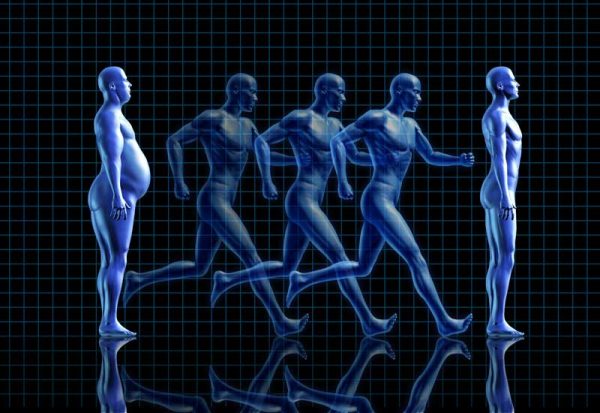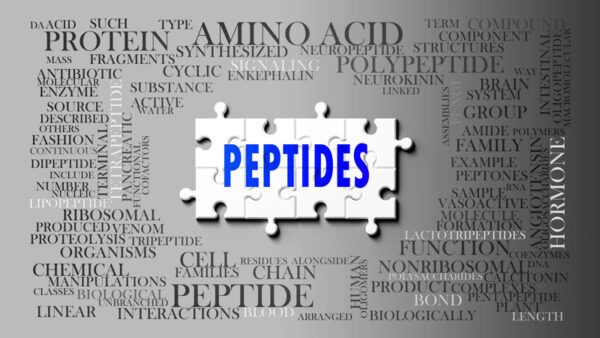HORMONES AND WEIGHT
You may have an excellent diet and exercise plan, but if your hormone levels are off they can prevent you from making any headway. Fortunately, scientists have identified the key hormones playing an integral role when it comes to Weight Loss. By addressing these with science-based medical testing, we can supercharge your weight loss program.
HOW IMPORTANT ARE HORMONES?
Have you tried numerous fad diets that leave you frustrated, hungry, and without body fat loss? Your hormones may be responsible. When men or women try to lose weight they often focus their energies on diet and exercise. However, other factors such as metabolism and hormone levels are just as important. Hormones are what your body relies on for metabolic programming. Hormones are naturally occurring chemical software codes instructing your body how to coordinate and control various physiological processes. With well over 60 different hormones at work regulating your body, it’s a complicated process, and experts are only recently starting to understand the implications to your health.
WHAT IS INSULIN?
Insulin is an essential hormone produced in the pancreas and used to manage blood sugar levels. Insulin production is regulated based on blood sugar levels and other hormones in the body. In a healthy individual, insulin production and release is a tightly regulated process, allowing the body to balance its metabolic needs. If you frequently crave sugar and feel like a meal isn’t complete without dessert, there’s a good chance you’re suffering from insulin resistance. Insulin resistance is brought on by continuous daily consumption of refined sugars requiring the pancreas to overwork to keep up with the high demand. Eventually, this creates insulin resistance exacerbating the problem as now the pancreas needs to produce more insulin to achieve the same result.
Insulin allows the cells in the muscles, fat, and liver to absorb glucose that is in the blood. The glucose provides energy or fuel to these cells as needed, and if not it can convert unused energy/fuel into fat for later use. Insulin also affects other metabolic processes, such as the breakdown of fat or protein. Over time, consuming too much sugar makes your cells insensitive to insulin, which in turn blocks sugar from entering your cells. That sounds like a good thing but it’s not. This tricks your body into thinking you aren’t getting enough sugar, even though your blood is flooded with it, and as a result, you crave sugar even more. When that happens, you have become insulin resistant and it becomes harder to lose weight.
Hormone Tips:
Avoid processed foods, sugars, pastas, breads, and alcohol to reduce the amount of insulin your body needs to manage blood sugar levels. Insulin is a dominant hormone and when present in the bloodstream blocks the metabolization of fat. Since insulin’s job is to transport energy to the cells, any unused fuel will get stored as fat. Aim for high fiber foods that are slow to digests (low glycemic index) and healthy proteins.
WHAT IS CORTISOL?
Cortisol (naturally occurring anti-inflammatory) and often called the “stress hormone” because of its connection to the stress response, however, cortisol is much more than just a hormone released during stress. Understanding cortisol and its affect on the body will help you balance your hormones and achieve good health.
Cortisol helps regulate blood sugar levels, metabolism, help reduce inflammation, and assist with memory formulation. It has a controlling effect on salt and water balance and helps control blood pressure. All these functions make cortisol a crucial hormone to protect overall health and well-being.
Problems associated with high cortisol levels can be rapid weight gain in the face, abdomen, and chest. When your body is over stressed, it produces cortisol which instructs your body to hold onto fat (especially the fat around the mid-section), break down muscle and bone, and raise blood sugar, all in preparation for fight or flight.
Hormone Tips:
Reducing stress is the key to keeping cortisol levels under control.[9] Meditation, long walks, warm baths, herbal tea, or socializing with friends are all very effective, especially if practiced daily.
WHAT IS GHRELIN?
If you find yourself in a constant state of hunger, your hormone Ghrelin may be at fault. It is produced in the gut and communicates with the brain when it is time to eat, commonly referred to as the “hunger hormone”. As your stomach empties your Ghrelin levels rise, signaling the brain to consume more food. When your stomach fills, the opposite happens and your brain will receive the signal it is now satiated and time to stop eating. This is why it is important to eat slowly and chew food thoroughly, this gives time for your Ghrelin levels to rise and signal the brain to stop eating.
This hormone also responds to other types of stress besides hunger. Chronic stress from lifestyle factors or lack of sleep can also stimulate the production of Ghrelin causing people to eat for other reasons besides the need for sustenance or recovery. Overeating due to stress and lifestyle is a major contributor to excess weight gain.
Hormone Tips:
Eat smaller meals, chew your food thoroughly, eat slowly to allow time for Ghrelin to signal the brain, aim for high fiber, high-quality protein, and low sugar or no sugar foods or substitutes. These foods will take longer to digest, leaving you feeling fuller and more satisfied. Avoid processed foods and limit sugars to reduce the amount of insulin needed to balance blood sugar levels when consuming high carbohydrate foods.
Lastly, you can reduce Ghrelin levels by reducing stress with long walks, meditation, full nights sleep and regular exercise.




